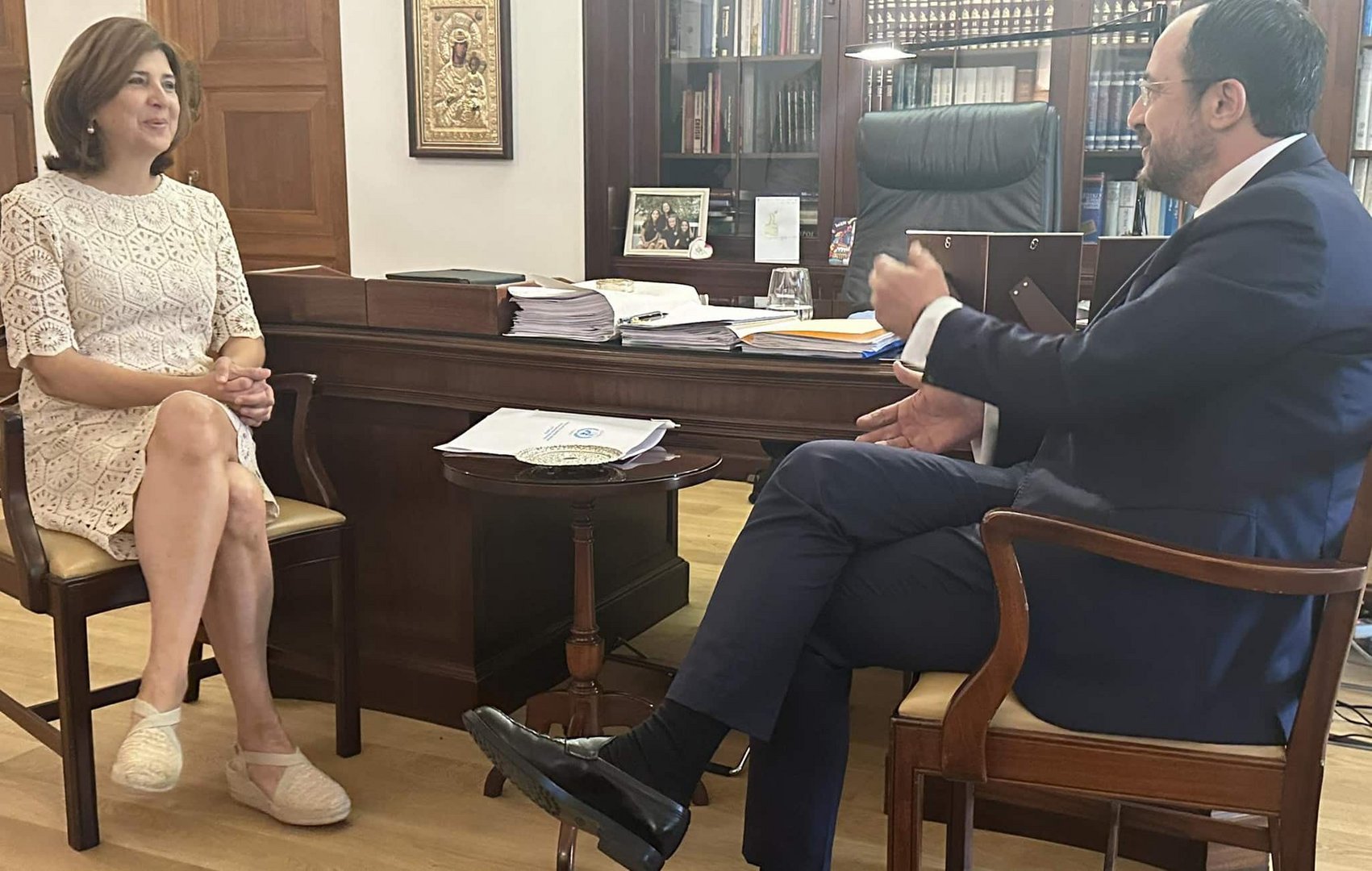Mixed response to Holguin’s open letter

Mixed reactions followed the open letter published over the weekend by Maria Angela Holguin, the UN secretary-general’s personal Cyprus envoy – some dismissed it as generic and tone-deaf to the realities on the ground, others saw a ray of hope and a different approach to resolving the island’s festering division.
In her unexpected open letter to the media, where she took stock of her tour of duty in Cyprus, Holguin urged the two sides to think outside the box while also warning of the detrimental effects of negotiations fatigue or dwelling on the past.
She said her time as envoy “focused on a constant search for paths that lead to generating trust between the parties”, and that it was now “important to move away from solutions that in the past have created expectations that were not met and led to greater disagreements and frustrations”.
Holguin added: “Now, we must think differently, remaining convinced that a common future would bring great opportunities to all Cypriots.”
The secretary-general’s envoy stated she was convinced that “Cyprus deserves and can find reconciliation and a new way forward”.
Her open letter came days before she is due to submit a report to UN Secretary-General Antonio Guterres.
For its part, the government read the letter as “an encouraging message”, pointing out that Nicosia shares “the same vision for a definitive solution that will make Cyprus an area of peace, security and prosperity in the region”.
The Edek party, seen as ‘hardliners’ on the Cyprus issue, were far less congenial to Holguin. In a statement, the socialists slammed the UN envoy for failing to frame the issue as one of invasion, ongoing occupation and Turkish settlers.
“She did not even hint at this inexorable reality, which Greek Cypriots have been experiencing for 50 years,” Edek complained.
They also took exception to Holguin’s reference to the Cyprus problem as “a conflict that has lasted more than 60 years”. According to Edek, this “sidesteps 20 July 1974, that is, the day on which Turkey invaded the Republic of Cyprus and in this way violated international law”.
Edek said Holguin did not explain at all how she envisions a possible settlement, or on what principles it would be based.
The party called on the UN envoy to openly acknowledge that the Cyprus problem is one of invasion and occupation “and to handle it as such, otherwise she will fail…assuming her goal is indeed to find a democratic and viable solution ensuring stability, security and prosperity in Cyprus”.
Meanwhile a commentary published in the Cyprus Times said the open letter is notable for what it doesn’t say, rather than for what it does say.
It said the letter kept “equal distances” between the two sides, so as to displease no one.
“She told us neither about resuming negotiations where they had left off at Crans-Montana, nor about convergences, nor did she mention the bizonal, bicommunal federation.”
The takeaway, according to the same commentary, “is that the key lies not in what she [Holguin] said, but in what she did not say and instead implied.
“From then on, we should use our imagination.”
But Praxoulla Antoniadou, leader of the United Democrats party, had an optimistic take on the UN envoy’s message.
“I see her as telling the two leaders that they are not doing enough, and that the time has come for changes to the negotiating process,” Antoniadou told the Cyprus Mail.
“She really hit the nail on the head where she said that you can’t move forward when you constantly reproduce pain in people’s minds. Another thing I noticed is her mentioning that many people are losing faith in a solution. I read this as her calling on the leaders to inject some hope, and quit the blame game.”
Essentially, in Antoniadou’s opinion, the open letter serves as a warning to the two leaders that they have one last chance to move before it’s too late.
“At the same time, I believe she published the letter so as to give some feedback to the public, so that they know what’s going on.”
Asked about the fact that Holguin’s message was vague and unspecific, the head of the United Democrats said one could not expect otherwise.
“This was not a court verdict, rather more like an encouragement to the two leaders. She went as far as she could.”
Antoniadou is also a member of the steering committee the Cyprus bicommunal women’s coalition, a non-partisan initiative bringing women together from both sides of the island.
On June 28, the coalition wrote to the UN secretary-general, asking him to renew Holguin’s mandate and also calling for a change to the negotiating process to make it more transparent and inclusive.
“It’s clear that the current format of having two individuals do all the negotiating hasn’t produced results over the past decades,” Antoniadou said.
